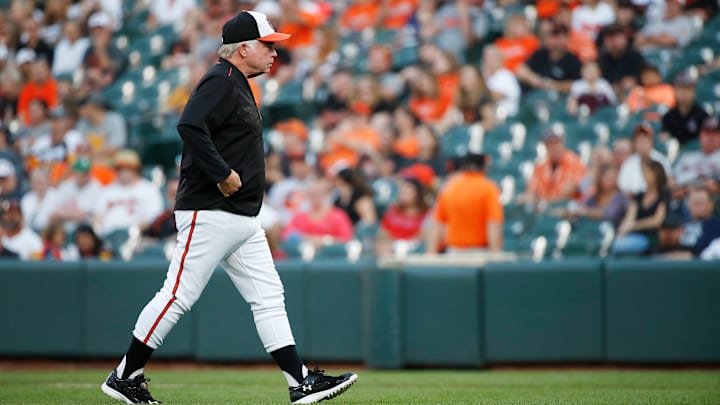The New York Mets are one of four teams that needed to search for a new manager this offseason. They've decided to go with Buck Showalter, the most experienced of the final candidates.
The finaal three were an interesting mix of candidates. What made the list of finalists surprising was because of the fact that two of the candidates, Joe Espada and Matt Quatraro, were entry-level candidates, having never managed in the major leagues before. Owner Steve Cohen has asserted several times that he prefers a manager with experience, yet it appears there is an ideological divide regarding the direction the Mets should go with their managerial vacancy.
Although the debate in the Mets front office could be broken down in several ways, it ultimately boils down to several rigid, uncompromising dichotomies: The difference between experienced and entry-level and old-school and modern, is what lies at heart of this managerial debate, and who the Mets choose will be a strong indicator of how Cohen wants to lead his organization into the future.
The Mets’ final managerial candidates reveal that the debate between old-school traditionalists and analytical modernists is still dividing front offices today.
On the one hand, you have Showalter, an experienced manager who won Manager of the Year three times and was at the helm for four different ball clubs (Diamondbacks, Yankees, Rangers, and Orioles). Showalter has been characterized as an old school manager, having managed in the 1990s and early 2000s when the game was played differently. Even in his most recent stop with the Orioles, Showalter managed the game in a more traditional way: He rarely relied on analytics in making in-game decisions, often going with his gut based on how the game unfolded.
Espada and Quatraro, on the other hand, represent the next wave of managerial candidates, who are more tactical in their decision-making and rely more on sabermetrics and analytics when making in-game decisions, regardless how the game is going. This new approach has been embraced by most managers and players currently in the big leagues, and it has led to some dramatic changes in how the game has been played. Critics of analytics argue that the league’s reverence bordering on cult-like fanaticism to analytics is turning fans away from the game, eradicating all the raw emotion and action that made the game great when it was first popularized.
The purpose of highlighting this current cultural schism in the sport in the broader context of American culture is to provide the background information for the current debate going on in the Mets front office. Traditional or modern? Old-school philosophy or analytical devotion?
While this debate leads to some interesting philosophical arguments that can be applied to bigger issues that transcend the game of baseball, it doesn’t answer the question of what is best for the Mets. Is it better for the Mets to go with a first-time manager for that fresh perspective, or a seasoned veteran who needs no learning on the job and knows how to get results?
Therefore, to answer this question, I decided to take a historical examination of all the Mets managers in franchise history and explore whether the team has been better off with a rookie or experienced manager.
For the purposes of this historical study, a rookie manager is defined as a manager whose first MLB managerial gig was with the Mets. Managing in the Minor Leagues or another professional baseball league before the Mets does not qualify. An experienced manager in this study was defined as a manager who managed another MLB club before managing the Mets.
